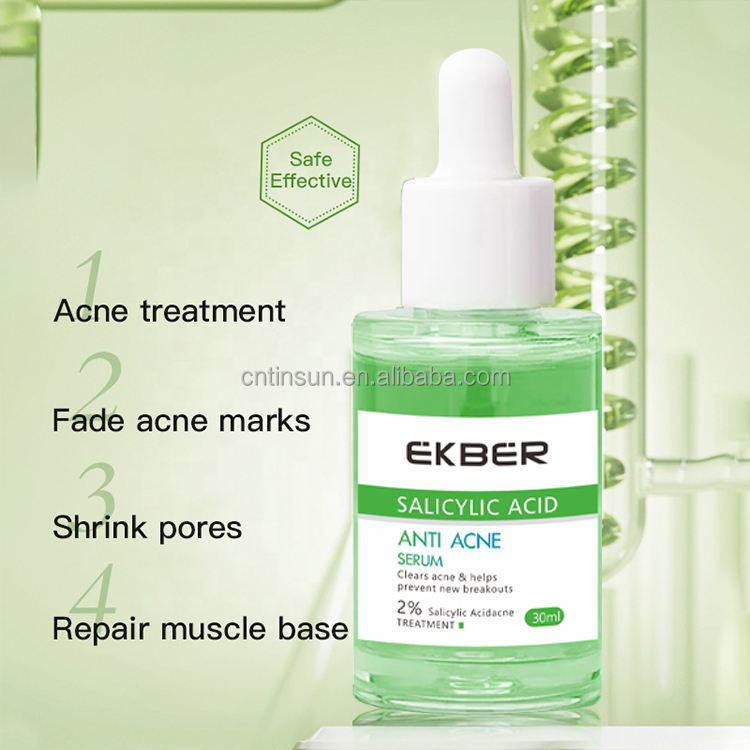Unlocking the Secrets of Dermocosmetics: A Comprehensive Guide to Skincare and Makeup
Release time:
Jul 19,2025
Unlocking the Secrets of Dermocosmetics: A Comprehensive Guide
Table of Contents
- What Are Dermocosmetics?
- The Evolution of Dermocosmetics
- Benefits of Dermocosmetics
- Key Ingredients in Dermocosmetics
- How to Choose the Right Dermocosmetics for Your Skin
- Applying Dermocosmetics: Tips and Techniques
- Popular Dermocosmetic Brands to Consider
- Frequently Asked Questions
- Conclusion
What Are Dermocosmetics?
Dermocosmetics represent a groundbreaking fusion of skincare and makeup, specifically designed to address various skin conditions while enhancing beauty. Unlike traditional cosmetics, dermocosmetics are formulated with active ingredients that deliver therapeutic benefits, ensuring that your makeup does more than just beautify your skin. They are ideal for individuals seeking products that cater to both aesthetic and dermatological needs, such as acne treatment, pigmentation correction, and anti-aging solutions.
The Evolution of Dermocosmetics
The evolution of dermocosmetics can be traced back to the growing awareness of skin health and the increasing demand for multifunctional products. Historically, cosmetics focused solely on aesthetics, but as consumers became more educated about skin care, the industry adapted.
In the late 20th century, scientific advancements in dermatology led to the incorporation of active ingredients in makeup products. This shift resulted in dermocosmetics that not only enhance beauty but also actively improve skin health. Today, these products are often recommended by dermatologists and are a staple in many beauty routines.
Benefits of Dermocosmetics
The benefits of dermocosmetics extend far beyond mere cosmetic enhancement. Here are some key advantages:
1. Therapeutic Ingredients
Many dermocosmetics contain powerful active ingredients such as retinoids, antioxidants, and hyaluronic acid that provide real skin benefits. These ingredients help to hydrate, repair, and protect the skin.
2. All-in-One Solution
Dermocosmetics serve as a dual-purpose solution, offering both skincare and makeup benefits. This makes them ideal for individuals who prefer a streamlined beauty routine without sacrificing quality.
3. Tailored Formulations
Formulated for a variety of skin types and concerns, dermocosmetics can cater to sensitive, oily, dry, or combination skin. They are also often non-comedogenic, ensuring they do not clog pores.
4. Dermatologist-Approved
Many dermocosmetics are developed in collaboration with dermatologists, ensuring that they are safe and effective for all skin types.
Key Ingredients in Dermocosmetics
Understanding the ingredients in dermocosmetics is crucial for making informed choices. Here are some of the most common and effective ingredients you will find in these products:
1. Retinoids
Retinoids are derivatives of Vitamin A and are renowned for their anti-aging properties. They help reduce the appearance of fine lines, wrinkles, and uneven skin tone.
2. Hyaluronic Acid
This powerful humectant draws moisture into the skin, providing hydration and plumpness. Hyaluronic acid is essential for maintaining a youthful complexion.
3. Peptides
Peptides are short chains of amino acids that stimulate collagen production, improving skin elasticity and reducing signs of aging.
4. Antioxidants
Ingredients such as Vitamin C, green tea extract, and niacinamide help combat free radical damage, promoting a brighter and more even skin tone.
5. SPF
Many dermocosmetic products include sun protection factors, ensuring your skin is shielded from harmful UV rays while looking beautiful.
How to Choose the Right Dermocosmetics for Your Skin
Selecting the right dermocosmetics requires understanding your skin type and specific concerns. Consider the following tips:
1. Identify Your Skin Type
Before choosing any product, determine whether you have oily, dry, combination, or sensitive skin. This will guide you in selecting formulations that work best for your skin.
2. Assess Your Skin Concerns
Do you struggle with acne, hyperpigmentation, or signs of aging? Understanding your specific skin concerns will help you find products with beneficial active ingredients.
3. Read Product Labels
Look for products that list their key ingredients prominently. Research these ingredients to ensure they align with your skin needs.
4. Consult a Dermatologist
If in doubt, seeking advice from a dermatologist can provide personalized recommendations tailored to your skin type and concerns.
Applying Dermocosmetics: Tips and Techniques
Application techniques can affect the performance of dermocosmetics. Follow these steps for optimal results:
1. Cleanse Your Skin
Start with a clean canvas. Use a gentle cleanser to remove dirt, oil, and impurities from your skin.
2. Apply a Toner
If you use a toner, apply it after cleansing to prepare your skin for better absorption of other products.
3. Use a Serum
Applying a serum containing active ingredients can enhance the benefits of your dermocosmetic products.
4. Choose the Right Foundation
When selecting a foundation or tinted moisturizer, opt for products labeled as “dermocosmetic” to ensure they have skin-benefiting properties.
5. Finish with SPF (if applicable)
If your product does not contain SPF, always finish your routine with a broad-spectrum sunscreen to protect your skin.
Popular Dermocosmetic Brands to Consider
Several brands specialize in dermocosmetics, offering a range of effective products:
1. La Roche-Posay
Renowned for its dermatologist-recommended products, La Roche-Posay offers a variety of skincare solutions for sensitive skin.
2. Vichy
Vichy is known for incorporating mineral-rich volcanic water in its formulations, enhancing skin health and vitality.
3. Bioderma
Bioderma focuses on creating products that respect the skin's natural balance, ideal for various skin types.
4. Eucerin
With a long history in dermatological science, Eucerin provides targeted skincare solutions for specific skin issues.
5. Avene
Avene's products are formulated with thermal spring water, soothing irritated skin and providing hydration.
Frequently Asked Questions
1. What’s the difference between cosmetics and dermocosmetics?
Dermocosmetics contain active ingredients that provide therapeutic benefits, while traditional cosmetics focus primarily on enhancing appearance.
2. Can dermocosmetics be used on all skin types?
Yes, dermocosmetics are formulated for various skin types, but it’s essential to choose products specifically designed for your skin concerns.
3. Are dermocosmetics safe for sensitive skin?
Many dermocosmetics are designed to be gentle and suitable for sensitive skin, but it's always best to patch test new products.
4. Do I need to use dermocosmetics daily?
For best results, incorporating dermocosmetics into your daily skincare routine is recommended.
5. Can I use dermocosmetics alongside other skincare products?
Yes, dermocosmetics can be layered with other skincare treatments, but it's advisable to consult with a dermatologist to ensure compatibility.
Conclusion
In conclusion, dermocosmetics represent a revolutionary approach to skincare and makeup, offering both beauty and therapeutic benefits. By understanding what dermocosmetics are, their benefits, key ingredients, and application techniques, individuals can make informed choices that enhance their beauty routines while promoting healthy skin. With numerous reputable brands available, integrating these innovative products into your daily regimen can lead to significant improvements in your skin’s health and appearance. Whether you are dealing with specific skin concerns or simply looking to elevate your beauty routine, dermocosmetics provide an abundance of options tailored to meet your needs.
Information Q&A























